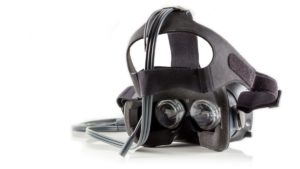 Recently our son-in-law, Nate, received a virtual reality set-up. (Okay, the truth is that I don’t even know any of the terminology for any of this so you can commence sniggering any time you want.) Nate was over the moon when he saw the box; his excitement lit up the room. As soon as he got it home, he began installing it—in my technological ignorance, no easy feat. But he had it up and running in no time.
Recently our son-in-law, Nate, received a virtual reality set-up. (Okay, the truth is that I don’t even know any of the terminology for any of this so you can commence sniggering any time you want.) Nate was over the moon when he saw the box; his excitement lit up the room. As soon as he got it home, he began installing it—in my technological ignorance, no easy feat. But he had it up and running in no time.
He & our daughter, Kate, invited us over to experience it. Oh, my goodness! How can the mind of man conceive such things? This mind of mine would not ever have been able to come up with anything like this.
I watched Nate and Charlie each play a couple of games. Then it was my turn. Nate helped me to get the gear on and adjusted. First he placed the helmet/headset on my head and snugged it down. Then he handed me the controllers—one for each hand—and placed the straps around my wrists. The real world fell away. I was in a room that looked something like the Star Trek holideck. It didn’t look entirely real, but there were things about it that looked pretty real. I was in a room in a game called Portal.
Because I haven’t played any computer games in years and those years have advanced the state of play far beyond where I was (which wasn’t far), Charlie, Nate, and Kate had to instruct me—a lot. While the controllers on each hand were the same, they did different things, and it didn’t come naturally to me. I’d press the trigger and nothing would happen, and one of my coaches would remind that I needed to push some other button.
I saw a virtual cube and could pick it up and move it. I could transport myself from place to place. That all seemed fine and fun—until I found myself in a room that had a drop-off into a lower level. I’m acrophobic so that made me uncomfortable. Nate pointed out that I could transport myself to the other side of the room past the drop-off. I did that. Unfortunately the drop-off was now closer to me.
I knew in my mind that the drop-off was imaginary, but my body wasn’t buying it. I was supposed to find the cube again and move it, but all I could think about was that drop-off behind me. I kept edging away from it. I couldn’t concentrate on anything but that drop-off. I finally admitted how uncomfortable it was making me. Nate asked if I was ready to be done, and I agreed that I was.
I wonder what would have happened if I had just stepped into the abyss. Would the game have stopped? Would I have experienced the sensation of falling? I don’t know.
What was real to me—the drop-off—wasn’t real at all. How often does that happen to me? What I think is real isn’t. What I don’t think is real is. I think that may happen pretty often. That’s fascinating and concerning at the same time. Is what I think real—or is it merely a mirage?
But here’s a truth I can hold to tightly: Isaiah 55:8-9 tells us, “’For my thoughts are not your thoughts, neither are your ways my ways,’ declares the Lord. ‘As the heavens are higher than the earth, so are my ways higher than your ways and my thoughts than your thoughts.’” I can know that this is always true—and always real, not virtual.
But I do want to try Portal again. I might just jump off that ledge. Or not.



 Recently our son-in-law, Nate, received a virtual reality set-up. (Okay, the truth is that I don’t even know any of the terminology for any of this so you can commence sniggering any time you want.) Nate was over the moon when he saw the box; his excitement lit up the room. As soon as he got it home, he began installing it—in my technological ignorance, no easy feat. But he had it up and running in no time.
Recently our son-in-law, Nate, received a virtual reality set-up. (Okay, the truth is that I don’t even know any of the terminology for any of this so you can commence sniggering any time you want.) Nate was over the moon when he saw the box; his excitement lit up the room. As soon as he got it home, he began installing it—in my technological ignorance, no easy feat. But he had it up and running in no time.